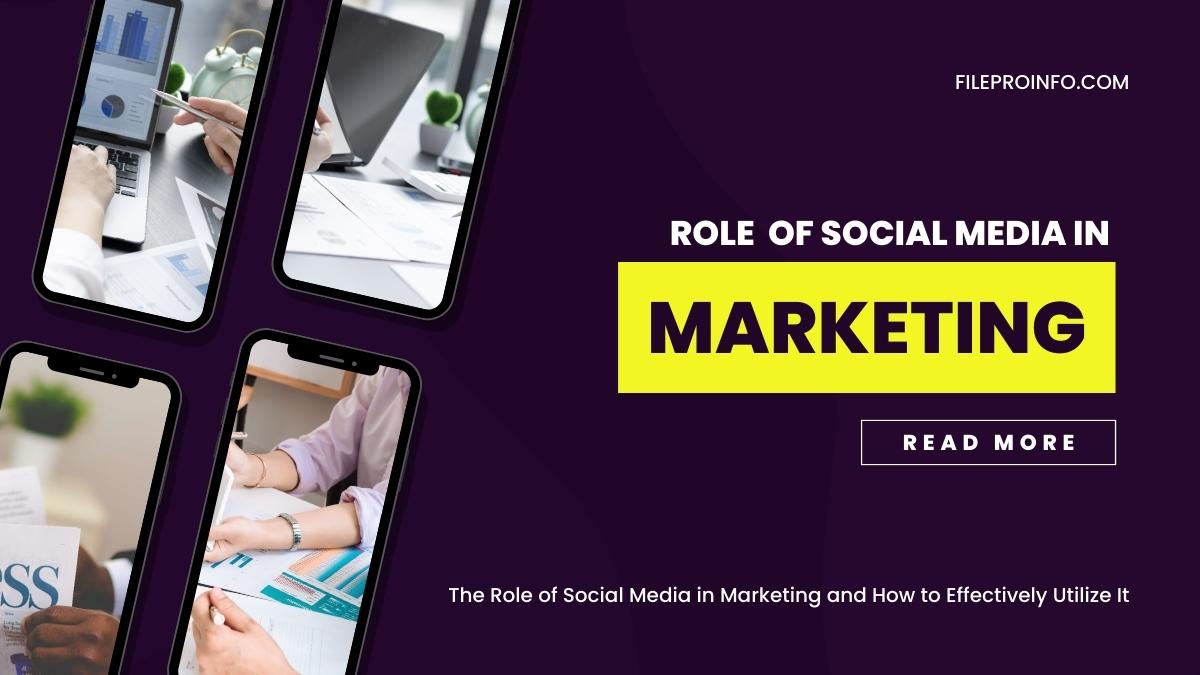
Social media plays a crucial role in modern-day marketing as it provides businesses with a platform to reach a large and diverse audience. With the rise of social media usage, businesses now have access to millions of potential customers who can be engaged through various social media channels.
Here are the steps to effectively utilize social media in your marketing efforts:
1. Identify your target audience:
Creating a successful social media strategy for marketing requires an organized and detailed plan that starts with identifying your target audience. Knowing who your customers are, what they like, and how to engage them is the key to being successful in utilizing social media as a marketing tool.
The first step in creating an effective marketing strategy on social media is to identify who you want your message to reach. A clear understanding of your ideal customer will help you determine which platforms will best suit their needs, as well as what type of content they’ll be most receptive to. With this knowledge, you can create targeted campaigns tailored specifically to the interests of the people you are trying to reach, which can result in higher levels of engagement from potential customers. Additionally, targeting specific audiences allows for more precise measurement and analysis of results so that adjustments can be made if needed for maximum effectiveness.
2. Choose the right platforms:
For businesses, it is essential to understand which social media platforms are best for their needs. Not all platforms are created equal and it’s important to choose the right ones to maximize the visibility and engagement of content. The key is to determine which platform works best for a particular audience or industry.
When choosing a platform, take into account how it can be used strategically as part of an overall marketing strategy. Assess whether the platform has features that can help promote brand awareness, such as hashtags, user reviews, or video capability. Consider how much time and budget must be allocated for the management of the chosen platform and if there are any potential risks associated with its use. Additionally explore which other brands or influencers already have a presence on that specific channel, so that you know what kind of competition your business will face when trying to reach potential customers through it.
3. Create a content strategy:
When it comes to marketing and social media, having a content strategy is essential for success. A well-crafted content strategy allows businesses to reach their target audience and optimize their presence on the best social media platforms. To start creating a content strategy, it’s important to have an understanding of your target audience, including their needs and wants. Additionally, research should be conducted into the most effective social media platforms to reach them with your message.
Once you have identified your target audience and the best platforms for your business, it’s time to create a content strategy that includes the types of posts you will use. Content can include videos, images, articles, or even polls that engage followers and drive interest in your brand. It is also important to consider the timing of posts so they are seen by as many people as possible; this will ensure maximum engagement from potential customers or clients.
4. Engage with your audience:
Engaging with your audience on social media is an essential part of successful digital marketing. It can be easy to forget that social media is not just about posting content but also interacting with the people who view it. Those interactions are what help build a strong community and create a larger following for your brand.
When it comes to engaging with your audience, comments are a great way to start conversations and build relationships with potential customers or clients. Taking the time to reply to comments shows that you care about what people have to say, which can promote trust in your brand. Additionally, actively participating in conversations can help spread awareness about your business as well as potentially gain new followers and customers in the process.
5. Measure your results:
In today’s digital-focused business world, social media has become an essential tool for success in the marketing industry. As a business leader, it’s important to understand how to use social media to drive brand awareness and engagement with customers. The final step of any successful marketing plan is to measure your results and adjust your strategy accordingly. This can be accomplished by tracking key metrics such as engagement, reach, or website traffic generated from different campaigns on various platforms.
By closely monitoring these metrics, you can learn more about what works best for your marketing efforts and tailor future campaigns accordingly. For example, if certain ads are generating high levels of engagement but not resulting in increased sales conversions, you may want to explore other promotional strategies that will better target potential leads and drive sales growth. Metrics also help gauge customer satisfaction so you can adjust products or services based on customer feedback.
Conclusion
Social media is a powerful tool for businesses looking to reach a large and diverse audience. By following these steps, businesses can effectively utilize social media in their marketing efforts to drive results and achieve their goals.




